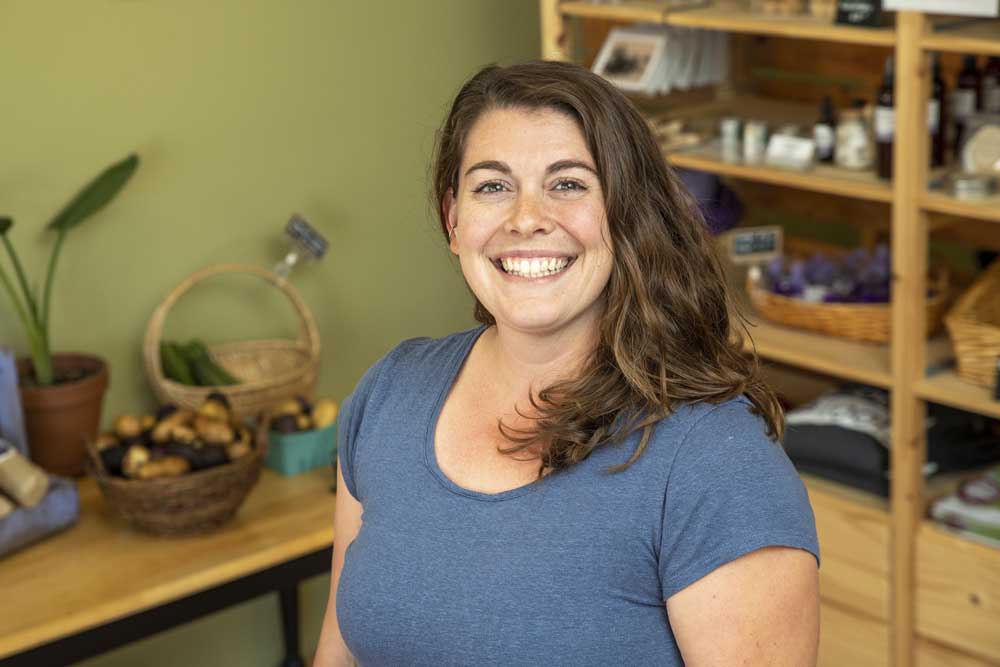Everyday People: An avid gardener helps others grow
Published 12:15 am Monday, April 12, 2021

- Julia Wentzel is the new coordinator for Oregon State University Extension’s Master Gardener program.
One of Julia Wentzel’s earliest memories of a garden is her grandfather’s potato patch.
It still seems like witchcraft, or a magician’s box of mysteries, the soil below and the leafy plant above and in the middle, suddenly, a tumbling pile of actual potatoes.
“Honestly, to this day I try to use root vegetables as the gateway drug into gardening,” Wentzel said.
For people who may not have been as in touch with where their food comes from, there are few things as educational or delightful as pulling up familiar food like a bright orange carrot or a ruby red beet in a place that might feel very unfamiliar: the dirt of a garden bed.
Wentzel is the new master gardener and small-farms program coordinator on the coast for the Oregon State University Extension Service. Based in Tillamook, she splits her time between Tillamook County and Clatsop County.
Wentzel has a background in helping communities better understand and engage with farming and food resources. An avid gardener herself, she firmly believes you do not need to spend a lot of money or own property to grow a garden that can supply you with some basic food.
A stint in the Peace Corps took her to Paraguay, where she worked with subsistence farmers and looked at ways to support the smallest scale farmers with the fewest resources, she said. It was an experience that motivated her to return to school to learn more, but also, later, to look at ways to engage directly with her own farming and growing communities in the Pacific Northwest.
She moved to the coast two years ago to work for the Tillamook-based nonprofit Food Roots and joined the extension service in December.
The coronavirus pandemic shut down many volunteer and educational opportunities last year for the master gardener program she now oversees, and it continues to hamper activities this year.
The program’s biggest event — the annual plant sale — will be held in May, though at a different location than usual.
The master gardening training itself is not happening this year, a first for the program since it was founded in the 1980s.
But Wentzel sees the lull as an opportunity.
“It’s giving us some time to think about the programs we offer and the ways we’re engaging in the communities, to think about who we are and who we are not including in our program,” she said.
This year, the master gardeners are planning to dedicate a row in their own gardens for the community. The food grown in these rows will go to local food pantries, where fresh produce is one of the hardest things to keep in stock.
It is an exciting plan after a year where food insecurities have only been further highlighted and exacerbated, Wentzel said.
For would-be gardeners — and there are many after the pandemic gave people both more time and inclination to try to grow their own food — Wentzel hopes to begin building more coast-specific gardening resources. The North Coast climate is really particular, she said, and contains many microclimates. While you can easily grow corn in Jewell, it may be more difficult on Astoria’s South Slope, for example.
The coast also, in general, still sees dramatic nighttime temperature drops well into spring.
So, Wentzel suggests, try not to get fooled by the occasional warm spring day that might entice you to start planting seeds earlier than you should. Closer to Memorial Day is often a better time to start a coastal garden, she said.
And, if you’re still not sure what will grow best in your area, spy on your neighbors.
“If someone has a nice garden down the street, take a peek,” she said. “It’s a clue.”




